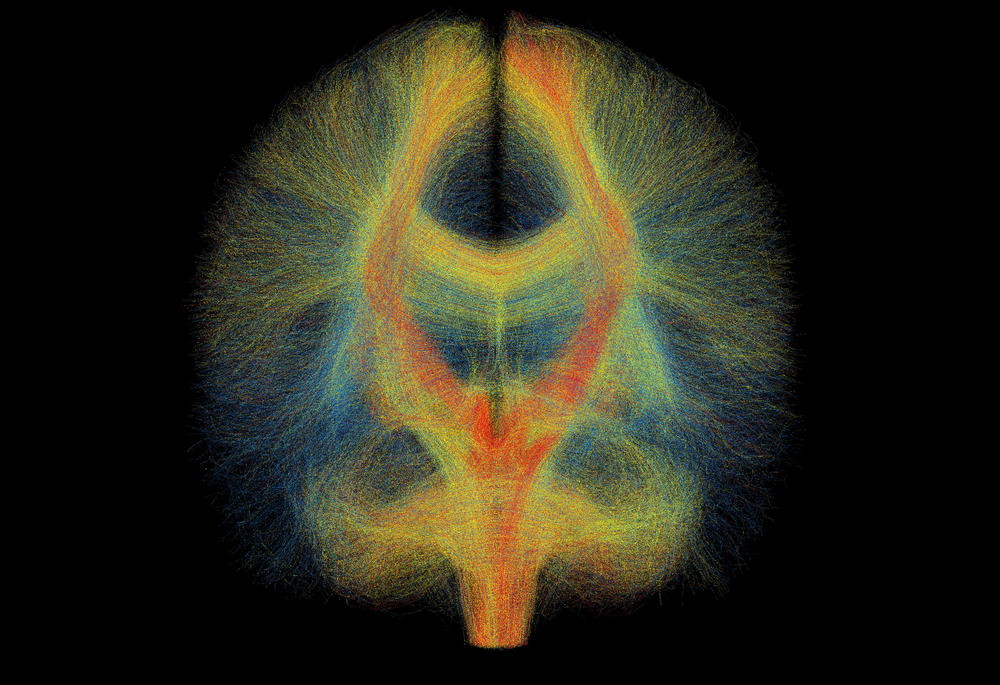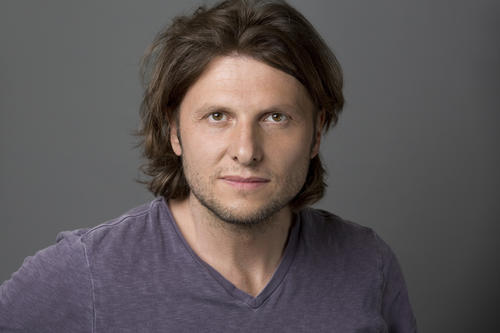“No Organ Is as Complex”
Neuroscientist Professor Dietmar Schmitz wants to better understand the brain in order to decipher disease mechanisms and develop therapies. This is only possible through interdisciplinary cooperation.
Mar 21, 2019
The working brain can only be observed to a limited extent. Researchers use images like these to improve Parkinson’s therapy.
Image Credit: Andreas Horn
The number of neurological and psychiatric diseases is rising steadily. At NeuroCure Cluster of Excellence at Charité – Universitätsmedizin Berlin, scientists and physicians contribute to the investigation of these diseases. Professor Dietmar Schmitz, Director of the Neuroscientific Research Center at Charité and spokesperson for NeuroCure, talks about the state of research on processes in our brain and the development of new therapies.
Professor Schmitz, what intrigues you about the human brain?
For me, the brain is the most fascinating organ. In most other organs, such as the heart or lungs, you can immediately see how they function. In the brain, this is only possible to a very limited extent. So much is still not understood – which is incredibly fascinating. The longer I study it, the more questions arise because no organ is as complex as the brain. Of course, we are always looking for answers.
What answers have you been able to find so far?
It’s the many small observations in different laboratories and working groups that advance brain research on the very big questions. Often, our results provide the basis for further examinations of neurological and psychiatric diseases. For example, we were able to show to what extent the functions of nerve cells are disturbed in a special form of dementia. With this knowledgewe can better understand and treat the disease.
How would you describe the research focus of NeuroCure?
In order to understand how the brain functions – how we think and feel – we have many research groups from different disciplines working together. For example, we are investigating how brain cells communicate with each other and how learning and memory formation take place.
How does one imagine the communication between brain cells?
The communication between nerve cells forms the basis of the functions of the human brain. Signal transmission takes place via highly complex contact points, the synapses. Incoming signals cause so-called vesicles to release carrier substances. These then interact with the downstream cell, which passes on the information. In neuronal and psychiatric diseases, the processes at the synapsesare often disrupted.
Prof. Dr. Dietmar Schmitz (Charité – Universitätsmedizin Berlin) is the spokesperson for the NeuroCure Cluster of Excellence.
Image Credit: Pablo Castagnola
At NeuroCure you deal not just with one clinical picture of the central nervous system, but with several. Can you give any concrete examples of what you are working on?
There are many: Among other things, we are investigating the plastic changes in the brain after strokes and their influence on various cognitive capabilities. We also investigate trauma in early childhood and its influence on brain development. There is also a research group working on autoimmune diseases of the brain. In such cases, the immune system attacks brain cells and triggers severe symptoms such as dementia, epileptic seizures, or psychoses. We are also very active in aging research: We are investigating, initially in flies and mice, whether memory performance improves after the intake of natural plant substances such as spermidine.
What does this substance do?
Spermidine stimulates the cellular degradation of damaged cell parts and also induces the cells to fast. Both have a positive effect on the health of brain cells and could be of interest in the future to prevent dementia.
Can you estimate when dementia will be curable?
Unfortunately, we do not know, and it is very difficult to make predictions. There are various forms of dementia, the most wellknown being Alzheimer’s. Forthemajority, there is currently no therapy that leads to acure,as the causes are still not satisfactorily understood. One focus of treatment is therefore to improve the quality of life of patients and their relatives. In close cooperation with the German Center for Neurodegenerative Diseases,we are continuing our intensive research to develop therapies for dementia. Exciting results on the relationship between brain functions and the immunesystem have just been published. But before such scientific findings can be translated into a possible treatment, it takes time.
How long does it take to develop a new therapy?
That depends on the diseases and therapies involved. It also depends onwhether a new drug ormedical device – such as an implant for brain stimulation in Parkinson’s patients – is being developed. Both have to be tested for efficacy and safety. Studies on this are extremely different in terms of time and cost. In addition, you need many study participants. On average, it takes about 15 years from the idea for a new treatment to the approved drug.We are trying to speed this up.
—The interview was conducted by Linda Tidwell and Julia Drews.
This text originally appeared on February 22, 2019, in a Tagesspiegel newspaper supplement published by Freie Universität Berlin, Humboldt-Universität zu Berlin, Technische Unversität Berlin, and Charité - Universitätsmedizin Berlin.
Further Information
NeuroCure
The NeuroCure Cluster of Excellence investigates neurological and psychiatric diseases such as Alzheimer’s, depression, epilepsy, Parkinson’s, stroke and schizophrenia. Scientists and physicians work closely together to implement findings from basic neuroscientific research into clinical trials and thus into new diagnostic procedures and therapies. In various projects, they investigate diseases encountered over the entire lifespan: from embryonic development to old age. The research approaches are diverse and range from molecular methods and imaging techniques to behavioral biology and neuropsychological investigations. Based at Charité – Universitätsmedizin Berlin, the cluster has been funded since 2007 and can now continue its work for seven more years within the framework of the German Excellence Strategy.


